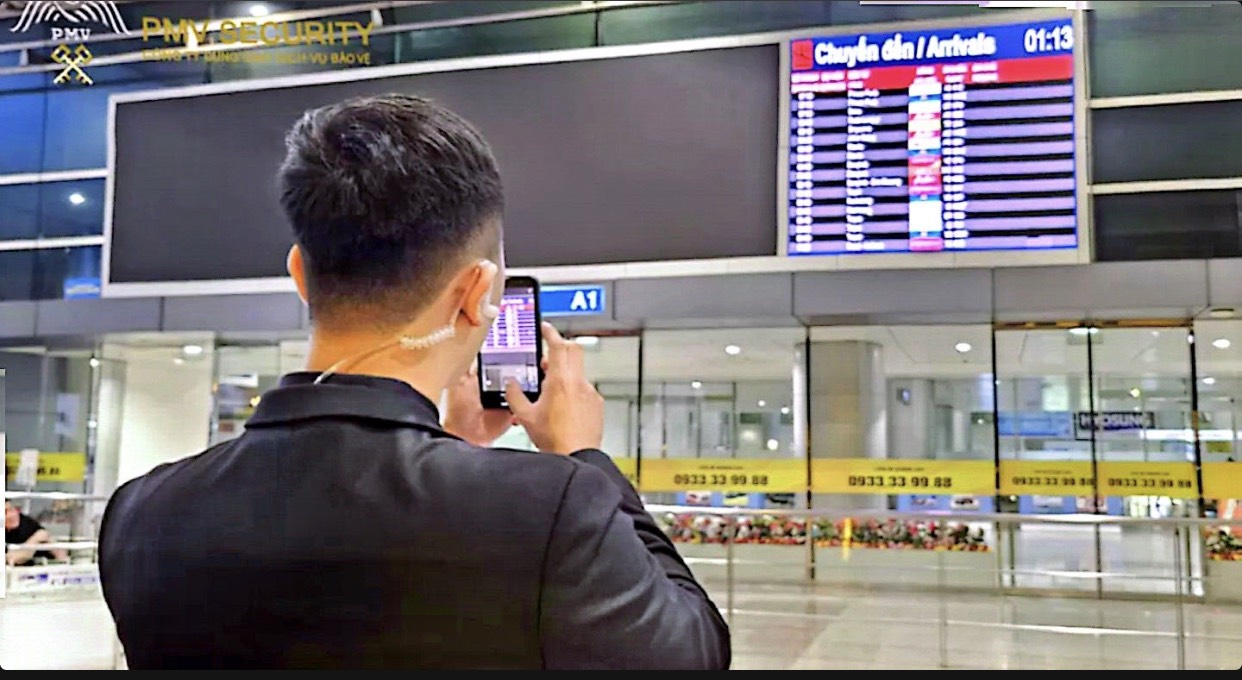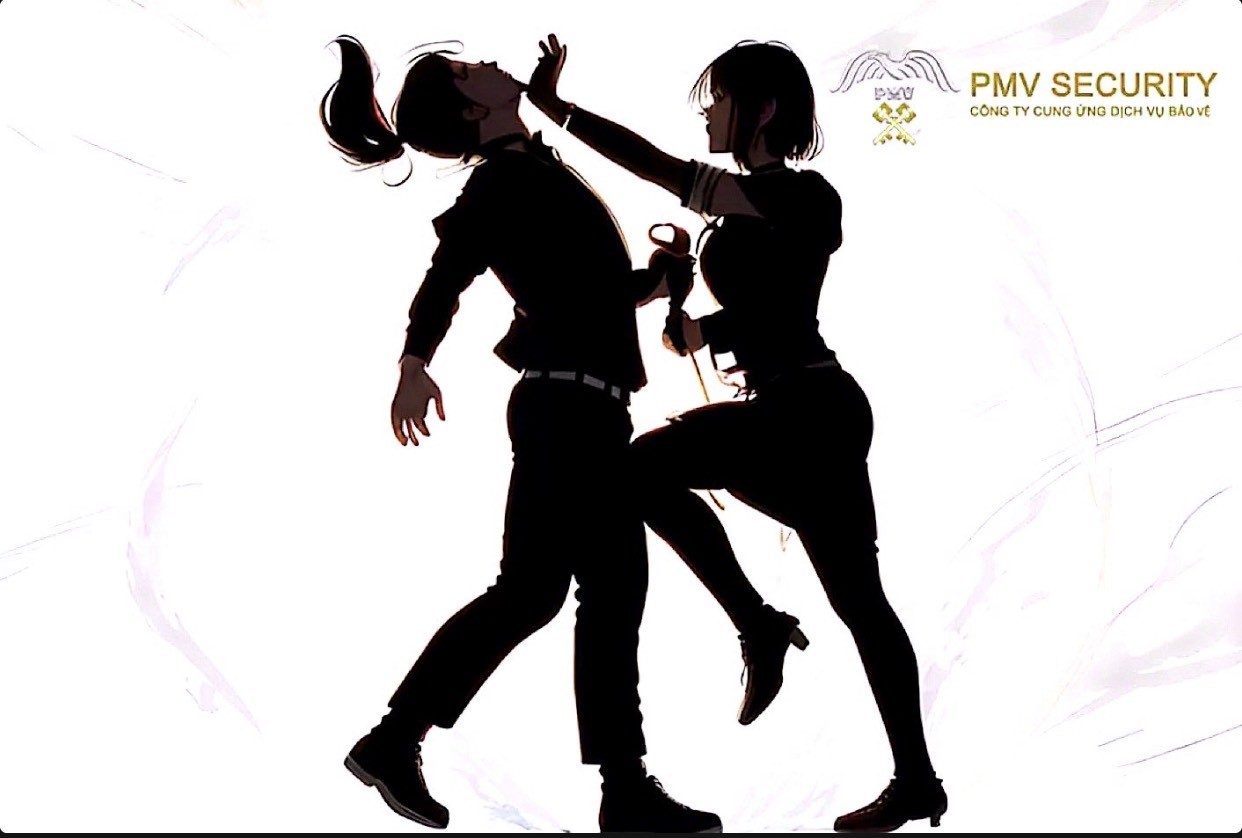Difference Between Bodyguard and Security Guard: Better Understanding the Two Careers in the Security Industry
Bodyguard and security guard are two familiar terms in the field of professional security. However, many people often confuse these two concepts. While both bodyguards and security guards play an important role in ensuring social safety and stability, they do have many notable differences. Let’s find out the difference between bodyguard and security guard through the definition and role of each of these forces.
Difference Between Bodyguard and Security Guard in terms of definition and role
Bodyguards and security guards both play an important role in protecting security, but each has its own “stage”. Bodyguards, like unsung heroes, are constantly on the move and protect individuals. Meanwhile, the guards are like loyal guards, protecting the fixed location and property.
Bodyguards are trained to be experts in risk assessment, rapid response, and advanced self-defense skills. They must remain vigilant and ready to deal with potential threats. In contrast, security focuses on maintaining order, controlling security, and protecting property.

Difference Between Bodyguard and Security Guard
Understanding the difference between a Bodyguard and a security guard will help us properly assess the role of both in ensuring security. Each person has an irreplaceable place in the overall security picture.
Definition and Role of Bodyguard
Bodyguards are professionally trained individuals who are tasked with keeping their clients safe from existing and potential hazards. Those who need to be protected by bodyguards are usually public figures, wealthy people or individuals with important social and political positions. Bodyguards must undergo intensive training in the necessary skills and knowledge to be able to ensure the absolute safety of their clients.
The main role and duties of bodyguards are to ensure the security and safety of the protected individual. First of all, they are responsible for protecting individuals from potential threats, closely monitoring and monitoring all activities around them. In addition, they also plan detailed security, ready to respond to emergency situations.
Bodyguards are also responsible for keeping confidential and protecting sensitive information of the person being protected. During public events, they support and ensure the safety of the person being protected. In addition to the main duties, the bodyguard can also undertake other auxiliary tasks at the request of the client.

Bodyguards are personal protectors
Definition and Role of Protection
Security guards are people who are professionally recruited and trained to protect the security and safety of property, facilities, and people. They are responsible for patrolling, inspecting, and monitoring assigned areas, detecting and preventing behaviors, violations, and reporting any unusual incidents.
Security guards have the task of protecting assets and material foundations of organizations and individuals, and preventing loss or damage. They strictly control the entry and exit of all individuals and vehicles to ensure that the target is safe. Patrol guards and continuous monitoring of the assigned area to detect and prevent in a timely manner unusual activities or security threats. They monitor security systems, cameras, and alarms to promptly detect and handle incidents. When an incident occurs, the protection responds quickly, applying necessary measures to prevent and limit damage. They record events, developments and report to their superiors. Protect and strictly comply with regulations and guidelines on security and safety issued by the organization.
Thus, the role of security is extremely important, contributing positively to maintaining security, order and protecting the organization’s assets and facilities. The difference between Bodyguards and Security Guards is also very evident in the functions and tasks of each person.

Protection is protection for targets that are production or business establishments
The difference between Bodyguards and Security guards in terms of training and support equipment
Although both bodyguards and security guards are tasked with protecting security, the difference between Bodyguards and Security guards mainly lies in the different training requirements and standards. Bodyguards must undergo an intensive training process in combat skills, the use of support tools, and advanced protection methods. Meanwhile, security guards are mainly trained in basic skills such as observing, taking notes, and coordinating with security forces. Quality requirements such as health, fitness and discipline also differ between the two groups. Understanding these differences will help us better distinguish the different roles and responsibilities between Bodyguards and Security Guards. Speaking of which, hopefully you have a better understanding of the difference between Bodyguards and Security Guards, as well as their important role in ensuring the security of society. Let’s continue to explore the interesting differences between these two careers in the next section!
Comparison of Basic Training Between Bodyguards and Security Guards
- Legal Knowledge Training: Bodyguards are highly trained in human rights, civil transactions, elements that constitute crimes, and the powers and responsibilities of bodyguards. Meanwhile, security guards are generally trained in security and order, powers and responsibilities of security guards.
- Martial Arts Training: Bodyguards are taught specialized martial arts techniques in combat and self-defense (Judo, Karate, Taekwondo, etc.). Security guards only learn basic self-defense techniques.
- Training in the use of weapons: Bodyguards are trained to use weapons and supporting tools (guns of all kinds, electric guns, tear gas, gloves, etc.). The guard must only learn to use assistive tools (electric baton, metal baton).

Bodyguards train more intensively in Martial Arts
- Driving Training: Bodyguards are trained in defensive driving techniques, safe driving in emergency situations. Security does not require this skill.
- First Aid and Rescue Training: Both bodyguards and security guards are taught 5 first aid techniques. However, bodyguards are also trained in basic rescue.
- Surveillance and Detection Training: Bodyguards are trained in advanced surveillance skills and potential threat identification. Security guards learn only basic observation skills, monitoring the security system.
- Communication and negotiation skills: Bodyguards are taught communication skills, escalators, handling crisis situations, and resolving conflicts. Security guards only learn basic communication skills.
- Observation and Detection Skills Training: Bodyguards are taught skills in observing and detecting threats and handling situations. Security guards only learn basic observation skills.
Comparison of costumes, assistive tools, and equipment between bodyguards and security guards
- Clothing: Bodyguards usually wear suits, discreet, polite, may have bulletproof vests. Meanwhile, security guards wear protective uniforms as prescribed.
- Supporting tools: Bodyguards can use guns, electric batons, gloves, body armor… For protection, use electric batons, rubber batons, metal batons, etc.
- Communication equipment: Bodyguards use compact headphones and mics, walkie-talkies, secure mobile phones. Security using walkie-talkies, mobile phones.
- Other assistive devices: Bodyguards have GPS locators, hidden cameras, personal first aid kits. Security guards have metal detectors, flashlights, notebooks, and first aid kits.

Bodyguard attire is different from protective attire
Summary of the differences between bodyguards and security guards
Bodyguard training has more in-depth skill and competency requirements than security guards. The work of bodyguards is directly related to the protection of personal safety and life, so it requires them to be equipped with a variety of knowledge, weapons, and skills such as emergency situation control, self-defense, first aid, quick response, etc.
Meanwhile, the difference between Bodyguard and Security Guard is that security guards are usually tasked with supervising, protecting property, facilities, and complying with basic security procedures, which do not require in-depth skills like bodyguards.
These different roles and job requirements lead to differences in the training and skills of these two groups of personnel. Hopefully, with this article, you have a better understanding of the difference between Bodyguards and Security Guards, as well as their important role in ensuring social security. Let us continue to explore the interesting differences between these two careers in the next section.
When clients need to hire bodyguards and when to hire security guards
Many clients often wonder and do not know whether to choose a bodyguard or security service in each specific case. Below, we will give some typical situations to help clients easily consider and choose the most suitable service.

When to hire a Bodyguard and when to hire a security guard?
When to hire a bodyguard
Bodyguards are usually hired in the following situations and circumstances:
- Important Personal Protection (VIP): Famous personalities such as singers, actors, athletes; politicians, high-ranking officials, business leaders; persons at high risk of being attacked or threatened.
- Major and important events: Conferences and seminars with the participation of leaders and senior officials; performances and entertainment events with the appearance of celebrities; weddings, wedding parties, private parties of famous people.
- Business or tourism trips: Trips to areas with high security risks; overseas business trips of business leaders.
- Specific threat situations: When receiving personal threats, anonymous letters, or feeling unsafe; when there are family disputes, divorce or intense litigation.
When to hire a security guard
Protection of facilities and assets:
- Office buildings, companies, factories, warehouses, private houses, parking lots.
- Commercial centers, retail stores, banks, schools, hospitals…
- Residential areas, apartment complexes, villa areas…
Small and medium-sized events:
- Public events such as fairs, exhibitions, small concerts.
- Private events such as wedding parties, birthday parties, family gatherings.
Access control and security monitoring:
- Access control for buildings, industrial parks, and urban areas.
- Monitoring the security camera system, patrolling the area.
Contact a reputable bodyguard and security service provider
Hopefully, with the information we have provided, you have clearly understood the difference between a Bodyguard and a Security Guard. However, when there is a demand for these services, clients are often confused due to the many providers in the market. Clients should choose a reputable bodyguard and security service provider such as PMV.

Professional Security Services in Ho Chi Minh City
Phat Minh Vuong Security Service Company (PMV) is one of the leading units in Vietnam specializing in providing professional security and bodyguard services. With many years of experience in the security industry, PMV always strives to improve service quality and c satisfaction. Please contact PMV for advice and experience the most professional security services.
Office of Bodyguard and Security Service Company in Ho Chi Minh City
- Address: 40/18 Street 19B, Tran Nao, An Khanh Ward, Thu Duc City, Ho Chi Minh City
- Email: hcm@baovepmv.com
- Phone: 028-7305-8838 or +84 975 989 963
Office of Bodyguard and Security Service Company in Hanoi
- Address: C20910, Vinhomes D’. Capitale, 119 Tran Duy Hung, Cau Giay, Hanoi
- Email: hn@baovepmv.com
- Phone: 024-7305-8838 or +84 975 989 962
In addition to offices in Saigon and Hanoi, PMV Security also has offices in Da Nang, Nha Trang, Dong Nai, Can Tho and Phu Quoc. Please contact us for the best advice and support! Hopefully, you have a better understanding of the difference between Bodyguards and Security Guards, as well as their important role in ensuring the security of society. Let’s continue to explore the interesting differences between these two professions in the following articles!
Micah A. (MR)
Professional Security Expert – PMV Security Services











